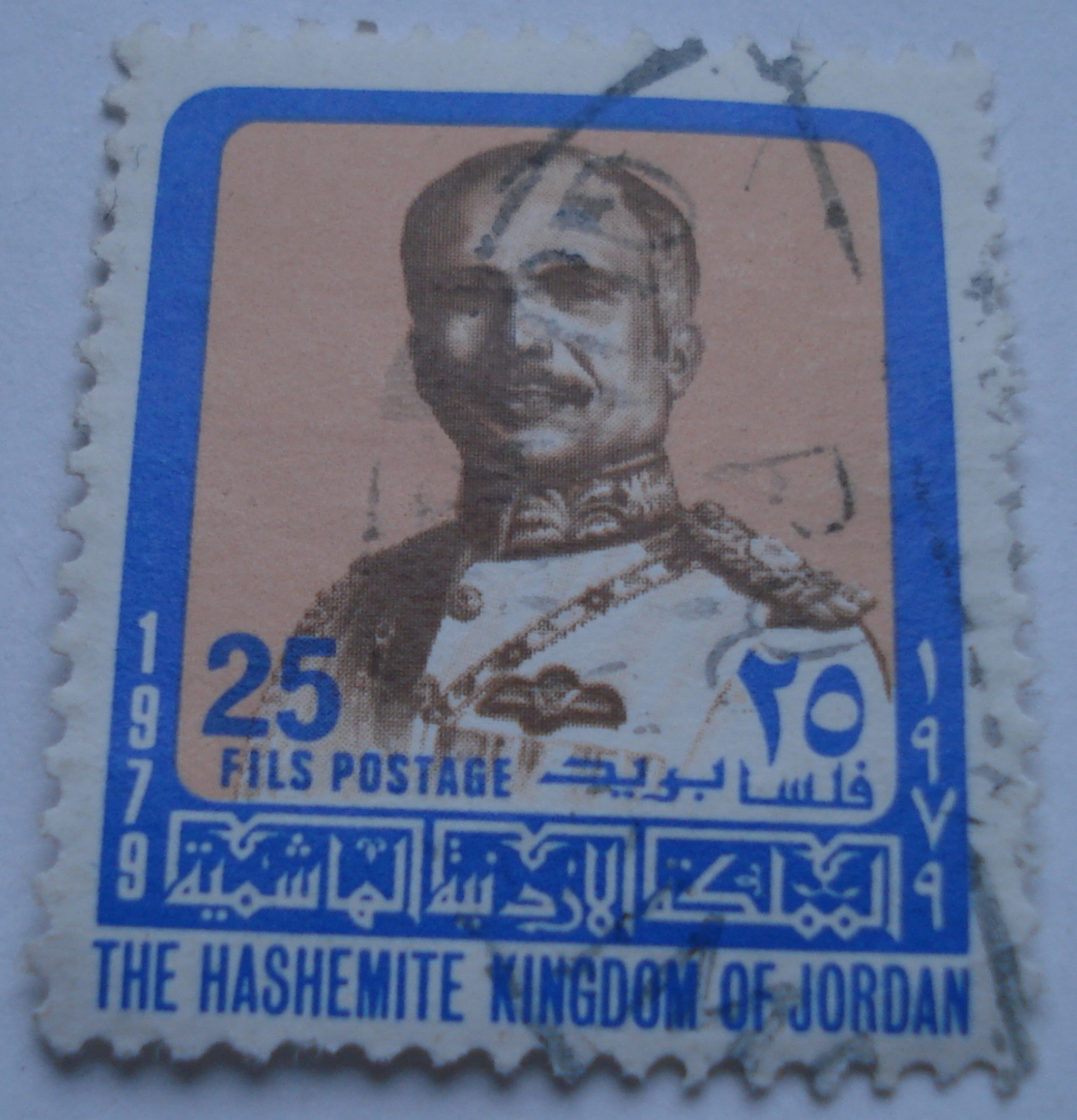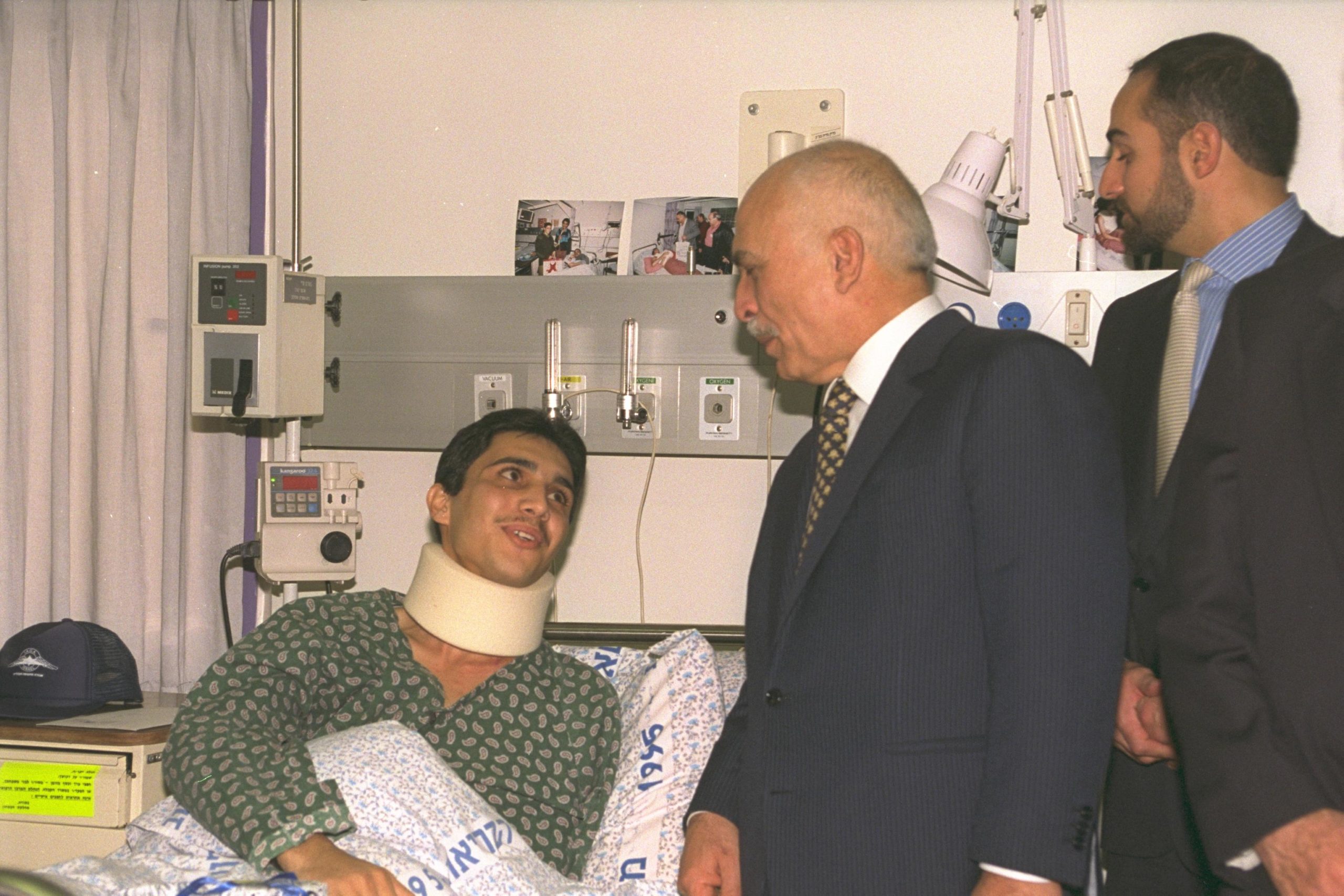Who is King Hussein Of Jordan?
King Hussein: A Legacy Of Leadership And Diplomacy In Jordan
Editor's Notes: "King Hussein: A Legacy Of Leadership And Diplomacy In Jordan" have published today date. This topic is important to read as Jordan is a beautiful country with a rich history and culture, and King Hussein was a key figure in its development. He was a wise and compassionate leader who worked tirelessly to promote peace and stability in the region and was a respected figure on the world stage.
King Hussein of Jordan was a visionary leader who guided his country through decades of turmoil and change. He was a key player in the Arab-Israeli conflict and a strong advocate for peace in the Middle East. Hussein was also a close ally of the United States, and he played a vital role in promoting stability in the region.
| Key Differences | |
|---|---|
| Born | November 14, 1935 |
| Died | February 7, 1999 |
| Reigned | 1952-1999 |
| Spouse | Queen Noor |
| Children | 4 |
Hussein was born in Amman, Jordan, in 1935. He was the eldest son of King Talal and Queen Zein. Hussein was educated in Jordan, Egypt, and England. He ascended to the throne in 1952 at the age of 17, following the abdication of his father.
FAQ
This comprehensive FAQ section delves into various aspects of King Hussein's remarkable legacy of leadership and diplomacy in Jordan.

Legacy Leadership Collective - Source legacyleadershipcollective.zendesk.com
Question 1: What were the key characteristics of King Hussein's leadership style?
King Hussein was known for his pragmatic, consensus-oriented, and compassionate approach. He prioritized dialogue, compromise, and the well-being of his people.
Question 2: How did King Hussein navigate the complex regional conflicts of his time?
King Hussein pursued a non-aligned foreign policy, maintaining diplomatic relations with both East and West. He played a pivotal role in peace negotiations and mediation efforts, earning him international recognition as a peacemaker.
Question 3: What was King Hussein's vision for Jordan's economic development?
King Hussein focused on fostering economic growth through investment, education, and infrastructure. He implemented policies aimed at diversifying the economy, attracting foreign direct investment, and empowering the private sector.
Question 4: How did King Hussein address the challenges posed by the Palestinian-Israeli conflict?
King Hussein sought to mediate and facilitate a peaceful resolution to the conflict. He recognized Israel's right to exist while advocating for the rights of the Palestinian people.
Question 5: What was King Hussein's legacy in promoting interfaith dialogue and tolerance?
King Hussein emphasized the importance of interfaith understanding and cooperation. He promoted tolerance and peaceful coexistence among different religious communities in Jordan and beyond.
Question 6: How is King Hussein's legacy commemorated today?
King Hussein's legacy continues to be honored through institutions, monuments, and educational initiatives that carry his name. His leadership and diplomatic achievements remain an inspiration for Jordanians and the international community alike.
In conclusion, King Hussein's legacy is one of wise leadership, skillful diplomacy, and unwavering dedication to peace and prosperity. His vision and efforts have left a lasting impact on Jordan and the Middle East region.
Continue to the next section: The Historical Significance of King Hussein's Leadership
Tips
Leadership and diplomacy are essential skills for any leader, and King Hussein of Jordan is a shining example of how to use these skills effectively. As a leader, King Hussein was known for his ability to build consensus and forge alliances, both within Jordan and on the international stage. He was also a skilled diplomat, able to navigate the complex world of Middle Eastern politics and find common ground with leaders from all sides of the conflict.
Tip 1: Build Consensus
One of the most important things a leader can do is build consensus among their followers. This means being able to bring people together, even those with different points of view, and find a common goal. King Hussein was a master of consensus-building. He was able to bring together Jordanians from all walks of life, from the Bedouin tribes in the desert to the urban elite in Amman. He also built strong relationships with leaders in the region, including Egypt, Syria, and Saudi Arabia.
King Hussein: A Legacy Of Leadership And Diplomacy In Jordan
Tip 2: Forge Alliances
In addition to building consensus, a good leader also needs to be able to forge alliances. This means building relationships with other leaders and organizations that can help you achieve your goals. King Hussein was a skilled diplomat, and he used his skills to build alliances with leaders all over the world. He was a close ally of the United States and the United Kingdom, and he also had strong relationships with leaders in the Arab world.
Tip 3: Be a Good Communicator
A good leader also needs to be a good communicator. This means being able to clearly and effectively communicate your vision to your followers. King Hussein was a gifted communicator, and he used his skills to inspire and motivate Jordanians. He was also able to communicate with leaders from all over the world, and he was known for his ability to build bridges between different cultures.
Tip 4: Be Decisive
A good leader also needs to be decisive. This means being able to make tough decisions and stick to them. King Hussein was not afraid to make tough decisions, even when they were unpopular. He was also able to stand up to his enemies and defend the interests of Jordan.
Tip 5: Be Courageous
A good leader also needs to be courageous. This means being willing to take risks and stand up for what you believe in. King Hussein was a courageous leader, and he was not afraid to take risks to achieve his goals. He was also willing to stand up to his enemies and defend the interests of Jordan.
The leadership of King Hussein is an inspiring example of how to use these skills effectively. By following his tips, you can become a more effective leader and make a positive impact on the world.
King Hussein: A Legacy Of Leadership And Diplomacy In Jordan
King Hussein, who reigned Jordan from 1952 to 1999, left an enduring legacy as a skilled leader and diplomat. His ability to navigate the complex regional politics, foster international relationships, and promote peace in the Middle East earned him global recognition.
- Political Stability: Preserved Jordan's stability amidst regional turmoil.
- Modernization: Led Jordan's socio-economic development and modernization.
- International Relations: Fostered strong ties with regional and global powers.
- Conflict Resolution: Played a key role in mediating regional conflicts.
- Diplomatic Success: Secured Jordan's borders and maintained regional stability.
- Legacy of Peace: Committed to peaceful coexistence and regional cooperation.
Hussein's legacy of leadership and diplomacy is evident in Jordan's enduring stability and its role as a regional mediator. By skillfully navigating the challenges of the Middle East, he not only secured Jordan's future but also contributed to fostering peace and cooperation in the region.

25 Fils 1979 - King Hussein II (1935-1999), King Hussein II - Jordan - Source www.allnumis.com

King Hussein, 1935-1999 | CIE - Source israeled.org
King Hussein: A Legacy Of Leadership And Diplomacy In Jordan
King Hussein's reign began in 1952 during Jordan's transformation from a newly independent nation to a modern, progressive Arab state. His leadership style was characterized by a deep commitment to stability and peace, as well as a strong belief in the power of diplomacy. Jordan's foreign policy under King Hussein was focused on maintaining friendly relations with neighboring Arab states and promoting international cooperation.

King Hussein Bridge Border Crossing,between Israel and Jordan Stock - Source www.dreamstime.com
Throughout his reign, King Hussein played a pivotal role in the Arab-Israeli conflict. He was a vocal advocate for a negotiated settlement based on UN Security Council resolutions and international law. His efforts helped to reduce tensions between Jordan and Israel, and in 1994, he signed a peace treaty with Israel.
King Hussein's legacy of leadership and diplomacy in Jordan is undeniable. He guided Jordan through a period of significant change and growth, and he played a crucial role in the Arab-Israeli conflict. His commitment to peace and stability remains an inspiration to leaders around the world.



